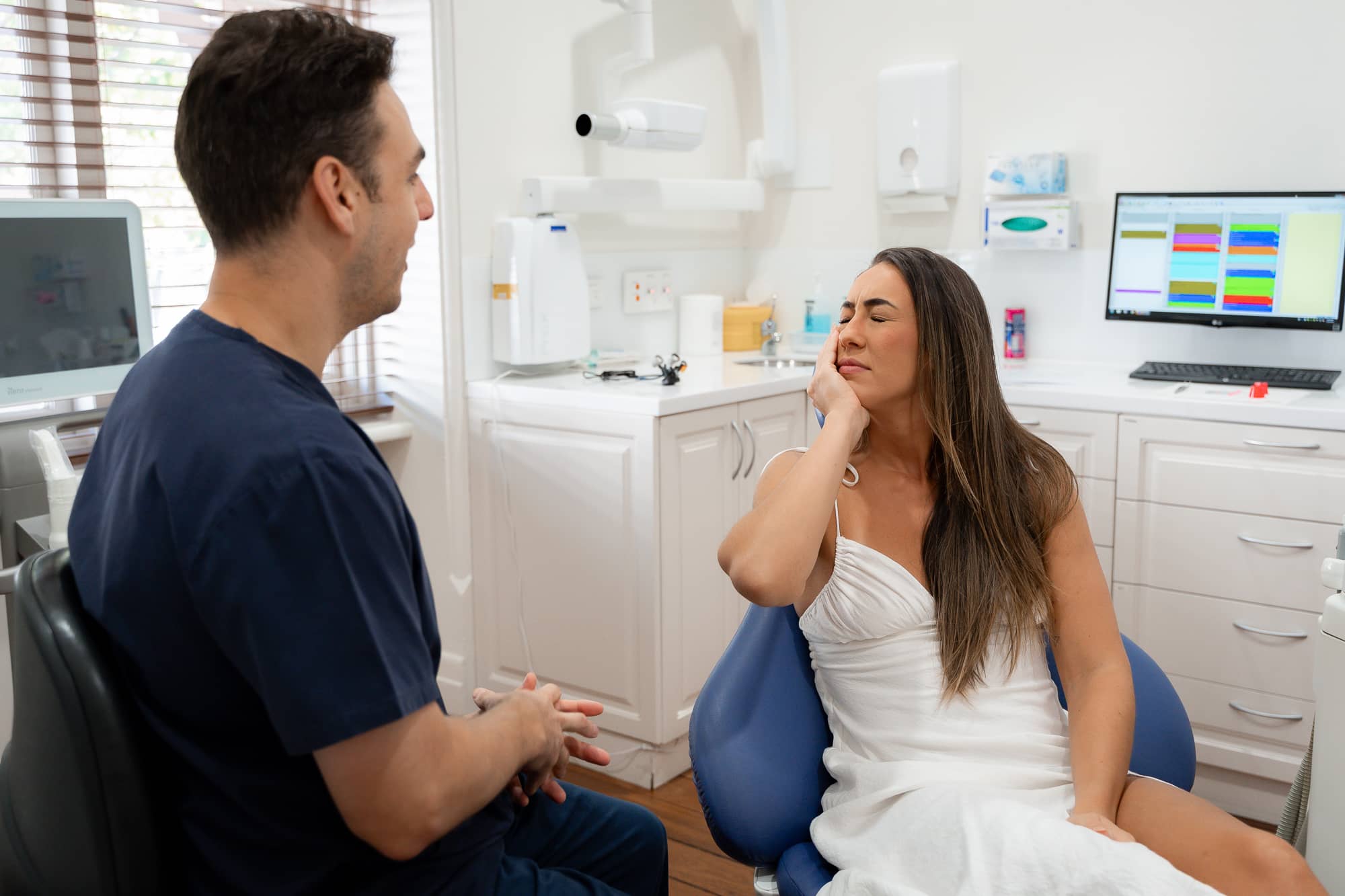Need urgent dental care? We offer same-day emergency dentist appointments in Perth for severe toothaches, broken teeth, swelling, and infections.
Chelmsford Dental knows that dental emergencies can happen unexpectedly. Our dedicated team is ready to provide fast, reliable, and professional care to address your urgent dental needs. We are committed to giving you the best support when you need it most.

If you’re experiencing any of the following, seek immediate dental care:
Severe Toothache – Rinse with warm salt water and take pain relief. Avoid aspirin on gums.
Broken Tooth – Rinse your mouth with water and apply a cold compress.
Knocked-Out Tooth – Keep the tooth in milk or saliva and visit us within 30 minutes.
Swelling or Abscess – Seek immediate treatment to prevent the infection from spreading.


We are all about generating better and healthier smiles. We all have a deep understanding that dental care is something that should be specially designed for each individual
Our team is built up of experienced dentists, who not only love what they do but also provide some of the highest quality dental services in not only Mount Lawley, but the whole of Perth!
Our staff are more than happy to answer any questions or queries you may have.
The majority of mouth injuries should be treated as soon as possible. In serious cases, seeing your dentist within 30 minutes can make the difference between saving or losing a tooth.
Most dentists purposely reserve time in the event of possible dental emergencies, so it is important to let the staff know if you think you require immediate care.
Taking the right measures until you are able to see your dentist can make a huge difference to the outcome. Here are some quick tips for handling the minutes leading up to seeing your dentist in the event of an emergency.
Knocked-out tooth – Remain calm and see if you can locate the tooth. Handle the tooth by the top (the crown), not the root. Be careful not to scrape or rub away any tissue fragments.
If you can, rinse the tooth quickly in some saliva or milk to remove any dirt or debris. Keep the tooth moist by immersing it in saliva or milk (not water) or sealing it in plastic wrap.
Chipped, fractured or cracked Tooth – Rinse the mouth with warm water to clean the area. If you have any swelling, apply a cold compress or an ice pack wrapped in a towel.
Toothache – You can use paracetamol or ibuprofen to reduce any symptoms. Try to make a note of what causes the toothache, such as biting down on particular foods, or if hot or cold foods make a difference.
Gently use dental floss to ensure no food is caught between your teeth. Avoid putting aspirin directly on your teeth or gums as this may burn the gum tissue. If the pain persists, contact your dentist.
Bitten cheek, tongue, or lip – Gently clean the area with warm, salty water. If there is any swelling or bleeding, gently apply pressure to the area with a cold compress or an ice pack wrapped in a clean cloth. If the area is still bleeding after 15 minutes or is bleeding profusely, please see a dentist or head to the emergency department.
Abscess – An abscess is a painful, localised infection, typically formed at the root of the tooth or in between the gums and teeth. Left untreated, the infection can spread and damage to surrounding teeth and tissues. Rinsing regularly with warm salt water can help minimise discomfort until you are able to see your dentist. You should arrange to see a dentist as soon as possible!
Lost filling or crown – If a cavity forms underneath a crown or filling, it can cause the crown or filing to loosen and eventually fall out. It can also be painful since the middle layer (dentine) of the tooth is exposed, making it extra sensitive to hot or cold. A new crown or filling will be necessary; this requires a dentist visit as soon as possible.
Our expert dentists consider the following problems dental emergencies:
Explore
© 2025 Chelmsford Dental Mount Lawley. All rights reserved. Privacy Policy. Web Design & SEO by Digital Hitmen.